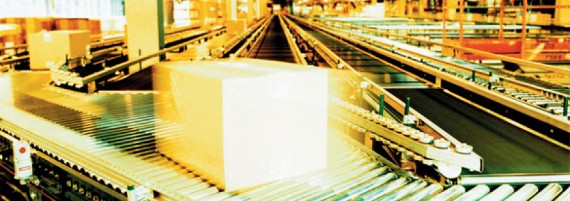Maintenance matters

Dr Maria Holgado from the IfM’s Centre for Industrial Sustainability (CIS) has been researching maintenance and particularly how it can make a vital contribution to a company’s long-term sustainability – when measured economically, socially and environmentally.
Maintenance used to be regarded as ‘a necessary evil’ by manufacturers – expensive, time-consuming and a drain on resources. It is now a mainstream view amongst researchers that maintenance (or asset management more broadly) is not only a ‘must do’ but also represents an opportunity to add value and to improve productivity and performance.
However, it seems that this view has yet to take hold in all corners of UK manufacturing. A recent report from Bosch Rexroth UK suggests that, with some honourable exceptions, the UK’s industrial maintenance practices could best be characterised as: “firefighting, reactive maintenance that is increasingly ill-suited to the demands of a modern industrial environment”.
There remains, therefore, work to be done in persuading manufacturers that taking a strategic approach to maintenance will deliver a wide range of economic, environmental and social benefits.
Economic sustainability
Research has shown that maintenance helps manufacturers achieve competitive advantage through cost, quality, delivery performance and flexibility. Effective maintenance programmes have also been shown to play an important part in fostering innovation at the factory level. Economic sustainability at both the business level and the production process level can be improved in a number of ways: operating costs are reduced by minimising failure and smarter investments are made in new equipment and technologies. Capturing and analysing maintenance data also helps companies predict the useful life and failure rates of their assets and hence supports better planning and decision-making.
Environmental sustainability
A good maintenance strategy can also improve environmental sustainability by helping the company to use its resources (water, air, energy, materials) more efficiently, reduce its atmospheric emissions and improve its land conservation. The lifecycle of machines is also an important part of environmental sustainability. As well as informing sound purchasing decisions, a clear maintenance plan will help to preserve equipment integrity and extend its lifecycle.
Social sustainability
Managing assets is as much about people as it is about machines and systems. With today’s fast-moving technologies, maintenance teams are expected to acquire new knowledge and skills on an almost continual basis. Companies need to have a clear development programme but they also need to ensure that maintenance personnel are involved in defining the procedures they are expected to implement. Doing so reduces the risk of failure and improves plant safety. Our research indicates that the involvement of maintenance teams also improves adherence to environmental and safety standards.
Maintenance should no longer be regarded as a necessary evil. Our research has shown that by taking a more proactive approach to maintenance, manufacturers can unlock value and achieve long-term sustainability.
Date published
12 May 2017










